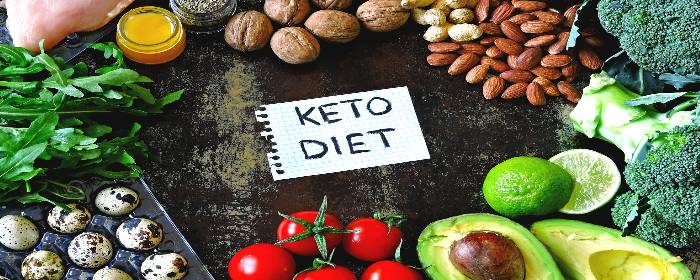
Here’s What Everyone Should Know About the Keto Diet
At one point or another, you’ve probably come across something about the “keto diet,” whether it’s a friend who’s lost weight on it or an article on the newsstand. Indeed, it appears that following ketogenic (keto for short) eating principles is the latest dieting fad which has taken the masses by storm. While it does have the potential to spur significant weight loss, however, it also carries certain risks. Here’s what you need to know before going keto.
What Is the Keto Diet?
At the most basic level, keto is a low-carb, high-fat approach to eating. It bears similarities to the Atkins diet and similar low-carb eating plans. Essentially, it requires dieters to drastically limit their intake of carbohydrates (which are found in everything from breads, pasta, and cereal products to fruit) and to replace them with fat. For those who follow the plan strictly, it means breaking down nutrition as follows:
- 75% fat
- 20% protein
- 5% carbohydrates
The average American diet consists of 50-65% of carbohydrates, so the keto diet requires a major dietary overhaul for most people. By making these changes, you’ll send your body into a different metabolic state known as ketosis.
What is Ketosis?
Ketosis is the process by which the body uses stored fat for energy. This occurs when there isn’t enough glucose to provide energy. As stored fat is burned, a buildup of acids known as ketones develop, which can supply the brain with energy. To determine whether they’ve reached ketosis, many individuals who pursue the diet use urine strips or blood pricks. Eventually, however, most people become able to recognize the feeling of being in ketosis.
Keto Meal Planning
Most variations of the keto diet require a strict, principled approach to eating in which high-fat foods like oils, butter, avocado, cheese, coconut, and nuts are used to satisfy the appetite. Non-starchy vegetables such as broccoli, asparagus, zucchini, peppers, and cucumbers, as well as leafy greens, are also permitted. Meats, eggs, and fish can be consumed regularly as well.
The list of restricted foods spans far and wide, however. Most fruits are not permitted, nor are grains of any type, heavily processed foods, alcohol, and milk, among many other foods and drinks.
Keto Diet Benefits
Weight loss is one of the main drivers that attracts people to the keto diet. More than 20 studies have supported low-carb eating approaches, indicating that reducing carbohydrate intake can help people lose weight. This is likely due to the fact that cutting carbs also requires you to nix simple, refined carbohydrates, which are typically caloric yet have little nutritional value.
It’s also suspected that the keto diet may help to control or prevent certain diseases, including epilepsy, metabolic syndrome, type 2 diabetes, obesity, dementia, Parkinson’s disease, polycystic ovarian syndrome, and certain types of cancer.
Despite its potential benefits, however, further research is still limited, especially in terms of long-term results. There are also certain risks all participants should consider before embarking on this diet.
Keto Diet Risks
One of the most notorious impacts of the diet is the “keto flu.” As the body adapts to this new eating approach, it experiences flu-like symptoms, including headaches and fatigue. Water is also lost early on, which can lead to dehydration – a potentially serious condition. It’s therefore critical to drink plenty of water, especially at first.
The diet is also difficult to stick with. Thus, while you may see results at first, it’s important to ask whether reducing carb intake so drastically is a practical long-term eating style you can maintain.
Additionally, a high-fat diet could lead you to take in too many saturated or trans fats, found in foods like red meat, cheese, butter, and poultry skin. These can cause “bad” cholesterol to spike and put you at risk for developing heart disease. Moreover, eliminating entire food groups can lead to unfavorable byproducts like kidney stones and constipation.
Ultimately, while the keto diet may be right for certain populations, it’s a good idea to have a talk with your doctor before you make the switch. By staying hydrated, limiting saturated and trans fats, and eating a healthy variety of keto-friendly foods, you may be able to find success with this approach.

 St. Petersburg, Florida
St. Petersburg, Florida
